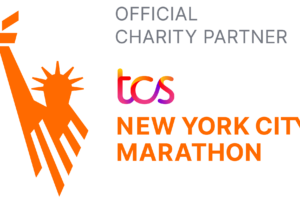MASAB Memo #7, July 31, 2018
Is less more? Can an aspirin a day keep the blood clots away?
by Michael Streiff, MD, Professor of Medicine and Pathology, Johns Hopkins School of Medicine, Baltimore
 Blood clots [also known as venous thromboembolism (VTE) which includes deep vein thrombosis (DVT) and pulmonary embolism (PE) or blood clots in the legs or lungs] are a common complication after orthopedic surgery. 1 Studies have shown that the average time after surgery to a blood clot is 7 days after knee replacement surgery and 17 days after hip replacement surgery. The incidence of clots stabilizes after 4 weeks in patients after knee surgery and after 10 weeks after hip surgery. 2 These data have prompted health care providers to prescribe prevention therapy for at least 14 days for knee and hip replacement surgery and consider extending therapy for up to 35 days, particularly in patients undergoing hip replacement surgery.1 For many years, guidelines have recommended anticoagulants (blood thinners) such as warfarin or low molecular weight heparin over aspirin.1
Blood clots [also known as venous thromboembolism (VTE) which includes deep vein thrombosis (DVT) and pulmonary embolism (PE) or blood clots in the legs or lungs] are a common complication after orthopedic surgery. 1 Studies have shown that the average time after surgery to a blood clot is 7 days after knee replacement surgery and 17 days after hip replacement surgery. The incidence of clots stabilizes after 4 weeks in patients after knee surgery and after 10 weeks after hip surgery. 2 These data have prompted health care providers to prescribe prevention therapy for at least 14 days for knee and hip replacement surgery and consider extending therapy for up to 35 days, particularly in patients undergoing hip replacement surgery.1 For many years, guidelines have recommended anticoagulants (blood thinners) such as warfarin or low molecular weight heparin over aspirin.1
However, the results of two studies challenge this long held dogma. The EPCAT (Extended Prophylaxis Comparing Low Molecular Weight Heparin to Aspirin in Total Hip Arthroplasty) study randomized 778 patients after hip replacement surgery who had received 10 days of injections of the low molecular weight heparin, dalteparin, to either 28 more days of dalteparin or a baby aspirin.3 It found that a baby aspirin was as effective as dalteparin for prevention of DVT/PE (0.3% versus 1.3%) and associated with a similar risk of bleeding (0.5% v. 1.3%).3
The same investigators recently published the EPCAT2 study which compared a baby aspirin with rivaroxaban (Xarelto®) one of the new oral blood thinners for patients undergoing knee or hip replacement surgery. 4 Patients undergoing hip replacement (1804 patients) or knee replacement (1620 patients) were randomly assigned to take either a baby aspirin or rivaroxaban after completing 5 days of rivaroxaban. Blood clots (DVT/PE) were equally common in patients taking aspirin (0.64%) and rivaroxaban (0.70%) and bleeding occurred in a similar number of patients as well (aspirin 1.29% versus rivaroxaban 0.99%). These data indicate that a baby aspirin is as effective and safe as rivaroxaban for blood clot prevention after hip or knee replacement surgery. 4
This study has significant implications for patients and health care providers. It is the first large study comparing aspirin with one of the new direct oral anticoagulants for prevention of blood clots after orthopedic surgery. The study confirms the results of the previous study that found that aspirin and the low molecular weight heparin dalteparin were equally effective for blood clot prevention after hip replacement surgery. Aspirin is significantly less expensive than either dalteparin or rivaroxaban. Furthermore, aspirin is also much easier to take than dalteparin which requires daily injections. Therefore, it is conceivable the results seen with aspirin in the study will be even better in “real world” patients as adherence to aspirin is likely to be higher due to its low cost and oral route of administration.
There is much to recommend aspirin as a drug to prevent blood clots in people undergoing hip or knee replacement surgery. However, it will be important for physicians to adhere closely to the study protocol to ensure that their patients have similar outcomes. This means providers should use rivaroxaban for the first 5 days after surgery. Prior to having hip or knee replacement surgery, patients should discuss the results of this study with their surgeon to determine if aspirin is the right choice for them.
It is important to note that there are two other ongoing studies comparing aspirin with blood thinners for prevention of clots after orthopedic surgery. The PREVENT CLOT study (Clinical Trials.gov study number NCT02984384) is comparing a baby aspirin twice daily with twice daily injections of the low molecular weight heparin enoxaparin after orthopedic trauma. The PEPPER trial (Clinical Trials.gov study number NCT02810704) is comparing a baby aspirin twice daily with warfarin or rivaroxaban beginning the day after surgery. These studies are scheduled to be completed in 2021. Until these studies are published, the EPCAT2 study provides important evidence that less anticoagulation is more and that a baby aspirin a day (after 5 days of rivaroxaban) can keep blood clots away.
References:
- Falck-Ytter Y, Francis CW, Johanson NA, et al. Prevention of VTE in orthopedic surgery patients: Antithrombotic Therapy and Prevention of Thrombosis, 9th ed: American College of Chest Physicians Evidence-Based Clinical Practice Guidelines. Chest 2012;141:e278S-325S.
- White RH, Romano PS, Zhou H, Rodrigo J, Bargar W. Incidence and time course of thromboembolic outcomes following total hip or knee arthroplasty. Arch Intern Med 1998;158:1525-31.
- Anderson DR, Dunbar MJ, Bohm ER, et al. Aspirin versus low-molecular-weight heparin for extended venous thromboembolism prophylaxis after total hip arthroplasty: a randomized trial. Ann Intern Med 2013;158:800-6.
- Anderson DR, Dunbar M, Murnaghan J, et al. Aspirin or Rivaroxaban for VTE Prophylaxis after Hip or Knee Arthroplasty. N Engl J Med 2018;378:699-707.
- Stewart DW, Freshour JE. Aspirin for the prophylaxis of venous thromboembolic events in orthopedic surgery patients: a comparison of the AAOS and ACCP guidelines with review of the evidence. Ann Pharmacother 2013;47:63-74.






